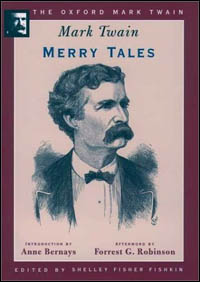
 |
The exception is the first story, "A Private History of a Campaign That Failed," a slightly fictionalized version of Twain's service in the Civil War. To wit: he and a bunch of his pals, under the direction of no one in particular, formed a Confederate battalion called the Marion Rangers, then tromped around eastern Missouri, hid in barns every time they heard vague rumors that Union troops were around, killed a man, were horrified at what they'd done, and disbanded. Some later joined the actual Confederate army (and were killed). Twain decided to light out for the territories.
Apparently he felt guilty about this for quite some time, so much so that it wasn't until quite late in his life that he was willing to discuss his participation or lack thereof in the war, and even then only obliquely. I find this interesting in that it perfectly parallels the key moment in Huck Finn, when Huck decides that even though he knows it's wrong and that he'll go to hell for it, he's going to help Jim escape from slavery. As Twain put it, it's the triumph of a good heart over a deformed conscience. Isn't that exactly the case with Twain and the Civil War? Society said people are honor-bound to report fugitive slaves; society says young men are honor-bound to go kill people when their country's at war — or at least that it's an honorable thing to do. Huck guiltily shirks his duty, and so did Twain: despite intellectually recognizing that he was in the right, he still felt bad about not taking lives on behalf of a country fighting for the ability to continue to enslave people. I wonder if Twain was consciously thinking of the divide between his own sense of right and wrong and that drilled into him by society when he wrote that famous Huck Finn passage.
